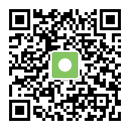Is Forex Trading Halal in Islam?

Forex trading has become increasingly popular among Muslim traders across the globe. But for many traders, stepping into the world of forex trading is not only an investment decision, it carries religious implications as well.
One critical question often comes up before opening a trading account: Is forex trading halal in Islam?
With so much conflicting information out there, it can be hard to separate facts from opinions.
The short answer is: Forex trading can be halal if conducted in a Shariah-compliant way.
To understand the details, we need to look at the principles of Islamic finance and how modern forex trading fits, or conflicts, with those guidelines.
Trading in Islam: Faith based principles of finance
Islamic finance is built on principles of fairness, transparency, and responsibility. When it comes to trading, three key rules shape what’s considered halal (permissible) or haram (forbidden):
1. Riba (Interest)
Earning or paying interest is forbidden in Islam. In forex, this often appears as swap fees: charges added when you keep positions open overnight. If your account includes swaps, your trades could involve ‘riba’, making them haram.
The solution? Islamic or swap-free accounts remove these fees, making your trades compliant.
2. Gharar (Excessive uncertainty)
Islam prohibits contracts filled with ambiguity or hidden risks. In trading, unclear terms, hidden fees, or delayed settlements fall into this category.
What’s okay: Transparent costs, instant settlements, and fair agreements.
3. Maysir (Gambling)
Calculated trading, based on research, strategy and informed decision-making isn’t forbidden by default – but high-risk speculation without proper analysis is. Trading becomes problematic if it’s based on luck instead of informed decisions.
The key takeaway: Knowledge and strategy separate trading from gambling.
Forex trading in Islam: Halal or haram?
Forex trading involves buying and selling currency pairs to profit from price fluctuations. While the mechanics seem straightforward, the Shariah perspective depends on how the trade is structured.
- Immediate settlement is key: In Islam, when you buy one currency and sell another, the exchange should happen instantly (spot trading).
- Leverage and interest: High leverage combined with overnight interest charges may make trading non-compliant.
- Intent matters: Trading as a means of business and wealth creation through informed analysis is different from gambling on pure luck.
Types of Forex trading: Which are halal and which are haram?
Let’s break it down:
Spot forex trading (Halal)
Spot trading, where currencies are exchanged immediately at the current price, is generally considered halal if:
- The broker settles trades instantly
- There’s no interest charged on overnight positions
- The trader avoids gambling-like behavior
Forex with rollover/swap fees (Haram)
When brokers charge or pay interest on trades held overnight, this falls under ‘riba’ and is haram unless you use an Islamic account.
Excessive leverage (Depends)
Islam discourages financial arrangements that create extreme risk. While leverage itself isn’t prohibited, using it irresponsibly, especially for speculative, high-risk bets, can conflict with Islamic principles.
Pro Tip: If your trading depends more on planning than guessing, you’re already leaning toward Shariah-compliant practices.
What is an Islamic Forex Account (swap-free)?
An Islamic forex account, also called a swap-free account, is specifically designed for Muslim traders.
With these accounts:
- No swap or rollover interest is charged or paid
- Same trading conditions as regular accounts
- Compliance with Shariah law ensured
- Transparency and fairness are maintained
At easyMarkets, our swap-free Islamic accounts allow Muslim traders to participate in the forex market without compromising their faith.
Positions on Islamic accounts can be held open for up to two weeks. After that, they expire automatically at 12:00 GMT ensuring continued Sharia compliance without incurring interest.
Halal Forex with easyMarkets: Shariah-compliant features
At easyMarkets, we understand the importance of trading in a way that respects your beliefs. Here’s how we support Shariah compliant trading:
- Swap-free Islamic accounts: Trade without paying or receiving interest on overnight positions
- Tight fixed spreads: Transparent, predictable trading costs
- Full transparency: No hidden fees or ambiguity
- Trusted broker: Trade confidently with a regulated broker
- Education and risk management tools: Empowering you to make informed decisions rather than relying on luck
Practical tips for halal Forex trading
To ensure your trading stays aligned with Islamic principles, follow these guidelines:
- Start with a swap-free account
Avoid interest-based charges from day one. - Stick to spot trading
Focus on immediate settlement whenever possible. - Base decisions on knowledge, not luck
Use tools, analysis, and strategy to guide trades. - Be responsible with leverage
Keep risks manageable to avoid excessive uncertainty. - Choose transparency first
Trade with a regulated broker that aligns with your values.
Final verdict: Is Forex trading halal in Islam?
Forex trading can be halal if structured in the right way. By using a swap-free Islamic account, avoiding interest, steering clear of gambling-like speculation, and trading transparently, Muslim traders can participate in forex trading while staying aligned with their faith.
At easyMarkets, we make this possible by offering transparent, Shariah-compliant trading solutions including swap-free Islamic accounts so you can trade confidently, ethically, and responsibly.
Still have questions? Here are some of the most common ones Muslim traders ask about halal forex trading:
Frequently Asked Questions
Not usually. Standard accounts involve swap or rollover fees, which count as riba (interest) and are haram in Islam. To trade halal, Muslim traders should use an Islamic forex account (swap-free) that eliminates interest charges.
Yes; when interest is completely removed and trading terms are transparent. Islamic forex brokers like easyMarkets design these accounts to comply with Shariah principles, ensuring Muslim traders can invest in forex without compromising their beliefs.
Not if done properly. Trading based on strategy, research, and analysis is considered business activity. But if it’s purely speculative and depends on luck, it becomes haram gambling (maysir). To keep forex halal, focus on knowledge-based trading, not gambling.
Yes, but it depends on how you use it. Leverage itself isn’t forbidden, but excessive, high-risk speculation is discouraged in Islam. Responsible use of moderate leverage for business purposes can be acceptable, while reckless, gambling-like leverage is haram.
Yes. By using swap-free Islamic accounts, sticking to spot trading with instant settlement, and avoiding interest or hidden fees, Muslim traders can practice halal forex investing in line with Shariah law.
- Sign up for a trading account at easyMarkets.
- Email us at cs@easymarkets.com or let your account service manager know that you would like to switch to an Islamic account.
- Once approved, you’ll receive a confirmation email. Your account will now operate with no swap or rollover fees.














